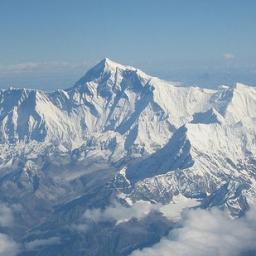Packing for two years, off the grid in the Himalayas...
 With a budget of just $1,200, and room for one carry-on and two check-in suitcases, both of no more than 60 kg (132 lbs), total, how would you prepare for living completely off-the-grid for two years in a remote village in the Himalayas?
With a budget of just $1,200, and room for one carry-on and two check-in suitcases, both of no more than 60 kg (132 lbs), total, how would you prepare for living completely off-the-grid for two years in a remote village in the Himalayas? That's the question asked by the Shortwave Listening Post, based on a user request, obviously with an intended focus on radio equipment and accessories. The necessities like food, shelter and warm clothing apparently being taken care of for you. Radio certainly would seem like the way to go for inexpensive entertainment and information in very remote areas, but answers that instead include satellite internet services (that stay within the budget with 2-years of service) could be equally interesting, if they are in fact available and practical.
http://swling.com/blog/2014/09/virtual-radio-challenge-ii-two-years-off-grid-in-the-himalayas/
Just a staticy feed of a few minutes of news every week can be a tremendous tool for them, keeping them up on events in the world around them, and perhaps being a life-saver in the event of natural or man-made disaster.
It's a shame that data broadcasting on shortwave isn't a big thing... Just imagine being in the middle of nowhere, and every day the SD card in your $50 shortwave radio just accumulates several more articles from Wikipedia, and even a few pictures, with no effort on your part. Maybe a Project Gutenberg book every week or so. And more. And that's just the "free" stuff I can quickly think of. I'm sure the many NGOs would be happy to come up with tons of original educational content for broadcasters send out to to entire continents full of isolated people, along side whatever audio programs.
You can kinda-sorta do that with ham packet radio, but that's far more time consuming and involved, and doesn't scale at all, where broadcasting data would work incredibly well.I think I'd rather have several back-issues of Mother Earth News mag, the original "off-the-grid" publication, telling me how to raise livestock, how to build well-insulated houses with hay bails, how to dig a well, etc., etc. Might be very useful to a remote village.